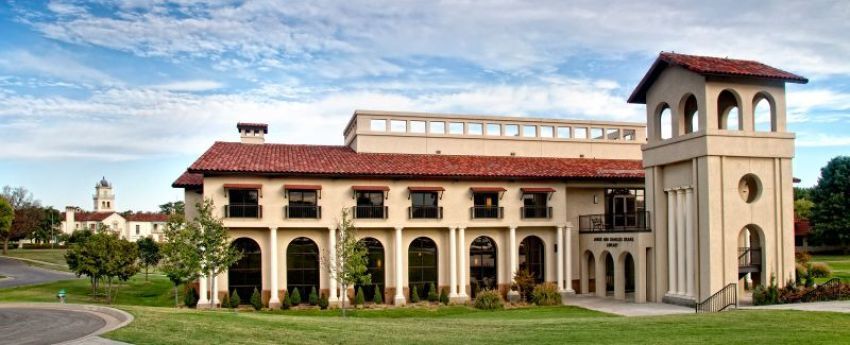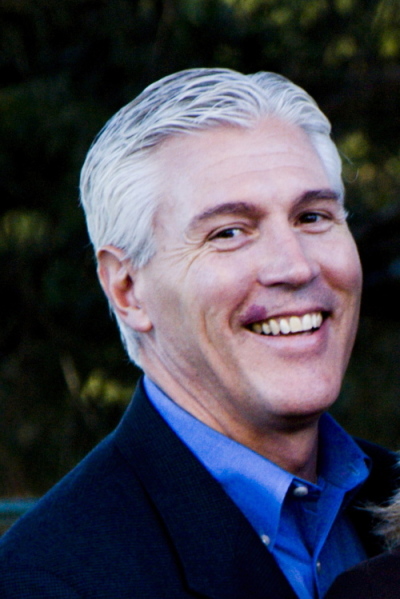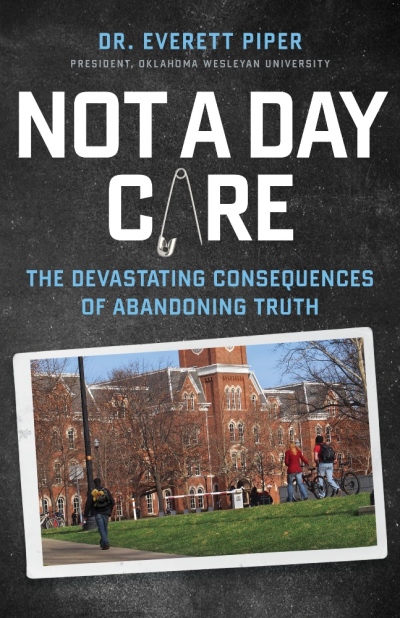College Is 'Not a Day Care': Christian Univ Head Talks Postmodernism, Lunacy on Campuses (Interview)

The president of a Christian liberal arts college whose words decrying political correctness in American universities went viral in the fall of 2015 is reissuing his warning about "safe spaces," hypersensitivity and the abandonment of truth on American colleges.
The purpose of a higher education is not to provide "safe spaces" where students are coddled like children and have their beliefs go unchallenged; a university, he argues, is "not a day care."
"We don't have academic freedom any longer on our campuses. We have ideological fascism," said Everett Piper, president of Oklahoma Wesleyan University, in an interview with The Christian Post.
The cost of foregoing the truth in favor of the primacy of one's feelings is steep indeed, he explains in his new book Not a Day Care: The Devastating Consequences of Abandoning Truth.
Instead of the pursuit of knowledge and the truth, institutions of higher learning have become places espousing a philosophy of "power and privilege," he says. And that is the logical result when one no longer believes in any enduring principle.

The book's title, Not A Day Care, came from the last line of a statement Piper wrote that was published on the OKWU website nearly 18 months ago. The statement articulated the spirit and purpose of the university he leads. He wrote it after a student complained about what one of the school's vice presidents said in a chapel sermon. Although there was nothing remotely offensive in the sermon — Piper personally reviewed it — the student had told the vice president that he should have prefaced his talk with a "trigger warning" and that what he said "victimized" him and made him feel "uncomfortable."
The sermon was simply a Christian call to charity, rooted in 1 Corinthians 13, the passage where the apostle Paul expounds on the nature of love.
Piper was so bewildered by this that he penned the strongly-worded post decrying this hypersensitivity and expressed what a Christian college like OKWU is — that it is not a place where you're guaranteed to feel comfortable all the time, but one "where you will quickly learn that you need to grow up."
"This is not a day care. This is a university," his statement concluded.
His words soon rocketed across the Internet and were summarily featured on numerous national news outlets. Prominent radio hosts and writers, likewise, praised Piper's words effusively. He even heard from many who do not share his political views nor his faith who told him they appreciated what he said. His phone rang constantly and emails and letters from parents started pouring in, thanking him for stating what should seem obvious but somehow is not today.
Unfortunately, much corruption and compromise has even infected universities that claim to be Christian, the author explains in considerable detail in chapter 5, "Corrupted and Compromising Christian Universities." Many Christian schools advertise themselves in their nicely-designed brochures as theologically sound environments but in fact have faculty who do not believe in the deity of Jesus Christ; these are teachers who challenge his virgin birth, death and resurrection as factual, he says.
At Oklahoma Wesleyan, however, no one is hired unless he or she is deeply committed to the inerrancy of Scripture and objectivity of truth, he writes. All OKWU faculty must also profess to be pro-life and pro-traditional marriage.
"I would argue that those institutions have abandoned the evangel, the good news, the truth of the gospel and the inerrancy of Scripture," Piper said.
"And I do contend that if you can't get some basics right, such as the definition of human life — that God defines it and you and I don't — and the definition of marriage, that it is a sacrament of the church and not a function of government" and that the human being is not defined by the sum total of his or her appetites and inclinations, the gospel has been badly compromised, he continued.
He recounted to CP that he once interviewed a candidate for a position at OKWU who he thought was a "slam-dunk" hire for the nursing department. She was well-qualified, had great credentials, and hailed from a denominational background rooted in the Wesleyan tradition.
Near the end of the interview, he inquired about her stance on the issue of protecting the unborn. She replied that she considered that a "political" topic and that she did not want to get into it.
"We did not hire her," Piper recounted.
"Who decided that the definition of the human being is 'political'? Who decided that the definition of marriage is 'political'? Who decided that the definition of morality, sexual or otherwise, is 'political'? I refuse to allow somebody to co-opt the language and squeeze me out of the debate by saying 'Well, you shouldn't get 'political,' you should stay focused on the gospel."

Those defining issues are "biblical," not "political," he stressed, "and if we step away from arguments that our culture is defining as political then we're actually showing great disrespect to our own church heritage."
He further noted that Luther Lee and Orange Scott, two of Wesleyanism's American forefathers, were abolitionists who worked to end the evil of slavery. Both men diligently engaged culture, and even separated from their churches over the issue.
"Are we going to suggest that they shouldn't have done it because it was too political? I hope not," Piper said.
He believes that at the root of much of the insanity on college campuses today is postmodernism — a philosophical direction critical of the foundations of philosophy as a whole, an approach that emphasizes the "construction" of truth. Through a postmodern lens, "truth" is no longer based in that which necessarily corresponds with observable reality but is primarily seen in terms of power relationships. Even language, the medium with which human beings communicate with each another, is deconstructed to this end.
Piper contends that contrary to assertions from leading historians who argue that postmodernity has passed, we are now seeing the rotten fruit of this ideology manifesting in totalitarian fashion, especially in schools across America.
"We're policing pronouns right now not because we're grading students on proper use of them — the historical, grammatical use of them — we're penalizing students who do use them properly and rewarding students who don't," he explained.
"It's Orwellian," he said, pointing out that a key premise in many of George Orwell's books is the upside down use of language and speech.
Dubbed today as "doublespeak," the author of 1984 and Animal Farm warned that when language is turned upside down and words are rendered meaningless and assigned new meanings by a socially-constructed consensus rather than an objective, enduring definition, it becomes impossible to be reasonable.
Case in point, Piper contended, is the culture calling into question the meaning of "male" and "female."
"If that isn't the loss of definition, the loss of language, that actually results in the detriment of the human being, I don't know what is."
For both intellectual life and humanity to flourish, a right understanding of "freedom" is essential, Piper told CP.
"The first thing to recognize is that 'freedom' does not presuppose a free-for-all," the author said.
"G. K. Chesterton told us that if you get rid of the big laws you don't get liberty, but you get thousands of little laws."
He explained that for true freedom to exist, it has to acknowledge a worldview that has been tested by time, proven by reason, and validated by experience. And the biblical worldview, the Judeo-Christian ethic, has provided the greatest amount of human freedom throughout the course of human history, he said.
"If you can live by 10 simple laws, and Jesus narrowed it down to two, then you're going to have a lot more freedom, academically or otherwise than you will ever have if you get rid of those 10 or two, and then basically subject yourself to the millions of little laws that will rush in to fill the vacuum to be imposed upon you by government and other sources of human power where they actually start telling you how to use the bathroom," Piper said.
"I mean, this is lunacy, it's crazy."
The seminal thesis of Not a Day Care is that ideas matter and that they have consequences, Piper emphasized, a theme he explores extensively in chapter 6, "Ideas Have Consequences."
"When you teach bad ideas, you're going to get bad culture, bad community. You're going to get a bad government and you're going to get a bad church." And the only way to receive the opposite is to teach the right, good, and best ideas, "the first things," he added.
"We seem to be too easily satisfied making mud pies in a back alley when we could have holiday at the beach," Piper offered, citing the wisdom of C. S. Lewis. "The ideas that drive our culture and drive our country and drive our church are the ideas that will either lead us to freedom or lead us to bondage, and unfortunately right now we're teaching selfishness and self-absorption rather than selflessness and confession. And as a result we're getting selfish and self-absorbed students. We're getting selfish and self-absorbed culture. Our country is losing its character and kids are losing their soul because we're teaching the wrong ideas."
"And parents need to stop sending their kids off to institutions that teach this pabulum," he insisted.
But despite a culture awash in such pabulum, Piper remains hopeful.
"As a Christian, as a person who grounds everything I say and do in a biblical worldview, I'm an optimist. I believe I know the end of the story."
"We know the gates of hell will not prevail against [the church]. So as a person who believes those words to be a fact and not a fable, I take confidence in the fact that I'm on the right side and that the truth of Christ and the truth of Scripture is the only answer and that it does prevail at the end of the day."
Until the end, however, Christians are not guaranteed comfort and ease, he said, and the question becomes: "What are you going to do in the face of the storm?"
"Are you going to hunker down and hide and hope that the storm blows over? Or are you going to do what I would argue Dietrich Bonhoeffer challenged us to do, when he said 'not to speak is to speak, not to act is to act, silence in the face of evil is evil itself. God will not hold us guiltless.'"
He underscored how important it is to engage the culture and tell the truth boldly and proudly, whatever the temporal outcome.
"We need to be salt and light in a culture that is rotting and one that is lost in darkness," he said.
"And I would argue that it's actually fun. It's a great joy to be on the front lines and to do your job."



























